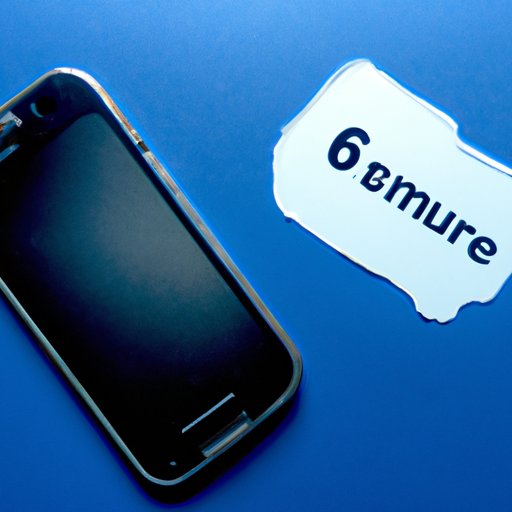Introduction
Do you ever feel like your personal information is no longer private? You may find yourself getting random calls or text messages from strangers, or perhaps you’re being harassed by someone. Regardless of the reason, it’s important to know how to take control of your privacy and protect yourself. One way to do this is to block your cell phone number so that it can’t be seen by others.
Cell phone number blocking is the process of preventing your phone number from being seen by others. This is done by either hiding your number from caller ID services, or by completely blocking your number from appearing in any searches.
In this article, we will cover the different methods you can use to block your cell phone number, as well as the pros and cons of each method. We will also provide tips for ensuring your privacy when using your cell phone.
Use a Third-Party Service
One of the easiest ways to block your cell phone number is to use a third-party service. These services allow you to mask your cell phone number so that it won’t show up on caller ID services. The most popular services are Google Voice and Burner, but there are many other services available.
When using a third-party service, you will be given a new number that is separate from your actual phone number. This new number can then be used to make and receive calls and texts without revealing your real number. These services typically have monthly plans that include a certain number of minutes and messages per month.
The pros of using a third-party service are that it’s quick and easy to set up, and you don’t have to worry about your real number being revealed. The cons are that these services can be expensive, and it can be difficult to keep track of multiple numbers.
Contact Your Carrier
Another option for blocking your cell phone number is to contact your cell phone carrier. Most carriers offer the ability to temporarily or permanently block your number from appearing on caller ID services. This can be done online or over the phone, depending on your carrier.
The pros of contacting your carrier are that it’s relatively easy to do and it’s usually free. The cons are that it may take some time to get the process completed, and if you want to unblock your number, you’ll have to contact your carrier again.
Utilize Call Blocking Features
Many cell phones now come with built-in call blocking features that allow you to block specific numbers from calling or texting you. These features work by allowing you to add a list of numbers to a “blacklist”, and any calls or texts from those numbers will be blocked. This is a great way to prevent unwanted calls and texts.
The pros of using call blocking features are that they’re very easy to set up and use, and they’re usually free. The cons are that they may not be available on all phones, and you have to manually add the numbers you want to block.
Activate Your Phone’s Privacy Settings
Most modern cell phones come with built-in privacy settings that allow you to control who can see your phone number. These settings allow you to hide your number from caller ID services, as well as choose who can see your number when you make calls or send texts.
The pros of using your phone’s privacy settings are that they’re easy to set up and use, and you don’t have to worry about your number being revealed. The cons are that these settings may not be available on all phones, and they may not be as effective as other methods.
Use *67 to Block Your Number
Another way to block your cell phone number is to use *67 before dialing a number. This code will prevent your number from being seen by the person you are calling, and they will only see a generic “blocked number” on their caller ID.
The pros of using *67 are that it’s very easy to do, and it’s usually free. The cons are that it only works when making outgoing calls, and it doesn’t work with all phone numbers.
Change Your SIM Card
Finally, another way to block your cell phone number is to change your SIM card. This is a more extreme measure, and it should only be used as a last resort. When you change your SIM card, your phone number will be changed, and any calls or texts from your old number will be blocked.
The pros of changing your SIM card are that it’s very effective and it will ensure that your number is not revealed. The cons are that it can be difficult to do, and it may cost money.
Conclusion
Blocking your cell phone number is an effective way to protect your privacy and keep unwanted calls and texts at bay. There are several different methods you can use to block your number, including using a third-party service, contacting your carrier, utilizing call blocking features, activating your phone’s privacy settings, using *67, and changing your SIM card. Each method has its own pros and cons, so it’s important to consider which one is right for you.
No matter which method you choose, remember to always use caution when giving out your cell phone number. Make sure you are comfortable with the person or company you are giving your number to, and always be aware of potential scams.


